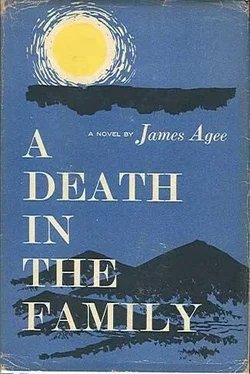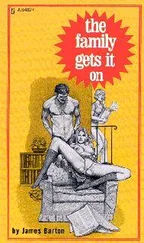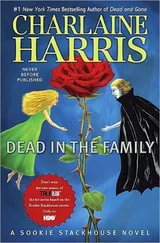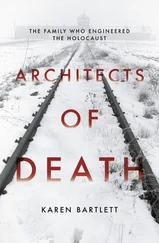He was tongue-tied; he felt himself blush. His aunt could not quite see the blush but his silence disconcerted her, for she had believed that this would make him really happy. Annoyed with herself, she nevertheless could not help feeling a little hurt.
"Or is there something else you'd rather have?" she asked, her voice a little too gentle.
He felt a great dilation in his chest. "Oh, no!" he exclaimed with passion. "Oh, no!"
"Very well then, let's see what we can do about it," she said, more than reassured; and suddenly she suspected in something like its full magnitude the long, careless denial, and the importance of the cap to the child. She wondered whether he would speak of it-would try, in any cowardly or goody-goody way, to be "truthful" about his mother's distaste for the idea (though she supposed he ought to be-truthful, that is); or, better, whether he could imagine, and try to warn her that in buying it for him, she risked displeasing his mother; and realized, then, that she must take care not to set him against his mother. She waited with some curiosity for what he might say, and when he found no words, said, "Don't worry about Mar-about your mother. I'm sure if she knew you really wanted it, you would have had it long ago."
He just made a polite, embarrassed little noise and she realized, with regret, that she did not know how to manage it properly. But she was certainly not going, on that account, to deny what she had offered; she compressed her lips and, by unaccountable brilliance of intuition went straight past Miller's, a profoundly matronly store in which Rufus' mother always bought the best clothes which were always, at best, his own second choice, and steered round to Market Street and into Harbison's, which sold clothing exclusively for men and boys, and was regarded by his mother, Rufus had overheard, as "tough" and "sporty" and "vulgar." And it was indeed a world most alien to women; not very pleasant men turned to stare at this spinster with the radiant, appalled little boy in tow; but she was too blind to understand their glances and, sailing up to the nearest man who seemed to be a clerk (he wore no hat) asked briskly, without embarrassment, "Where do I go, please, to find a cap for my nephew?" And the man, abashed into courtesy, found a clerk for her, and the clerk conducted them to the dark rear of the store. "Well, just see what you like," said Aunt Hannah; and still again, the child was astonished. He submitted so painfully conservative a choice, the first time, that she smelled the fear and hypocrisy behind it, and said carefully, "That is very nice, but suppose we look at some more, first." She saw the genteel dark serge, with the all but invisible visor, which she was sure would please Mary most, but she doubted whether she would speak of it; and once Rufus felt that she really meant not to interfere, his tastes surprised her. He tried still to be careful, more out of courtesy, she felt, than meeching, but it was clear to her that his heart was set on a thunderous fleecy check in jade green, canary yellow, black and white, which stuck out inches to either side above his ears and had a great scoop of visor beneath which his face was all but lost. It was a cap, she reflected; which even a colored sport might think a little loud, and she was painfully tempted to interfere. Mary would have conniption fits; Jay wouldn't mind, but she was afraid for Rufus' sake that he would laugh; even the boys in the block, she was afraid, might easily sneer at it rather than admire it-all the more, she realized sourly, if they did admire it. It was going to cause no end of trouble, and the poor child might soon be sorry about it himself. But she was switched if she was going to boss him! "That's very nice," she said as little drily as she could manage. "But think about it, Rufus. You'll be wearing it a long time, you know, with all sorts of clothes." But it was impossible for him to think about anything except the cap; he could even imagine how tough it was going to look after it had been kicked around a little. "You're very sure you like it," Aunt Hannah said.
"Oh, yes," said Rufus.
"Better than this one?" Hannah indicated the discreet serge.
"Oh, yes," said Rufus, scarcely hearing her.
"Or this one?" she said, holding up a sharp little checkerboard.
"I think I like it best of all," Rufus said.
"Very well, you shall have it," said Aunt Hannah, turning to the cool clerk.
Waking in darkness, he saw the window. Curtains, a tall, cloven wave, towered almost to the floor. Transparent, manifold, scalloped along their inward edges like the valves of a sea creature, they moved delectably on the air of the open window.
Where they were touched by the carbon light of the street lamp, they were as white as sugar. The extravagant foliage which had been wrought into them by machinery showed even more sharply white where the light touched, and elsewhere was black in the limp cloth.
The light put the shadows of moving leaves against the curtains, which moved with the moving curtains and upon the bare glass between the curtains.
Where the light touched the leaves they seemed to burn, a bitter green. Elsewhere they were darkest gray and darker. Beneath each of these thousands of closely assembled leaves dwelt either no natural light or richest darkness. Without touching each other these leaves were stirred as, silently, the whole tree moved in its sleep.
Directly opposite his window was another. Behind this open window, too, were curtains which moved and against them moved the scattered shadows of other leaves. Beyond these curtains and beyond the bare glass between, the room was as dark as his own.
He heard the summer night.
All the air vibrated like a fading bell with the latest exhausted screaming of locusts. Couplings clashed and conjoined; a switch engine breathed heavily. An auto engine bore beyond the edge of audibility the furious expletives of its incompetence. Hooves broached, along the hollow street, the lackadaisical rhythms of the weariest of clog dancers, and endless in circles, narrow iron tires grinced continuously after. Along the sidewalks, with incisive heels and leathery shuffle, young men and women advanced, retreated.
A rocking chair betrayed reiterant strain, as of a defective lung; like a single note from a stupendous jew's-harp, the chain of a porch swing twanged.
Somewhere very near, intimate to some damp inch of the grass between these homes, a cricket peeped, and was answered as if by his echo.
Humbled beneath the triumphant cries of children, which tore the whole darkness like streams of fire, the voices of men and women on their porches rubbed cheerfully against each other, and in the room next his own, like the laboring upward of laden windlasses and the mildest pouring out of fresh water, he heard the voices of men and women who were familiar to him. They groaned, rewarded; lifted, and spilled out: and watching the windows, listening at the heart of the proud bell of darkness, he lay in perfect peace.
Gentle, gentle dark.
My darkness. Do you listen? Oh, are you hollowed, all one taking ear?
My darkness. Do you watch me? Oh, are you rounded, all one guardian eye?
Oh gentlest dark. Gentlest, gentlest night. My darkness. My dear darkness.
Under your shelter all things come and go.
Children are violent and valiant, they run and they shout like the winners of impossible victories, but before long now, even like me, they will be brought into their sleep.
Those who are grown great talk with confidence and are at all times skillful to serve and to protect, but before long now they too, before long, even like me, will be taken in and put to bed.
Soon come those hours when no one wakes. Even the locusts, even the crickets, silent shall be, as frozen brooks In your great sheltering.
Читать дальше












